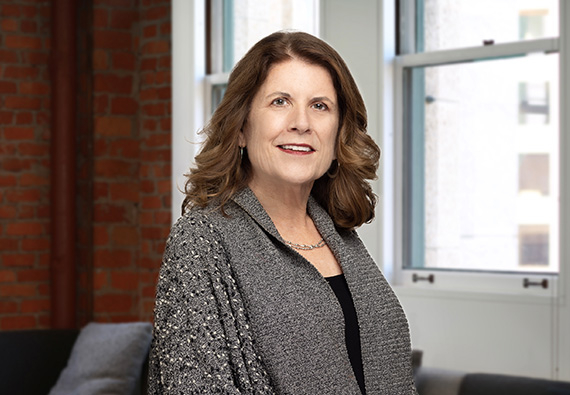Law360 Rainmaker Q&A: Farella Braun's Mary McCutcheon
Mary E. McCutcheon is an insurance recovery partner in Farella Braun & Martel's San Francisco office and is chairwoman of Farella's construction and insurance department. Over the past 30 years, she has represented corporations, public entities and individuals in a variety of insurance coverage disputes, ranging from tech sector meltdowns to options backdating claims to earthquake losses.
She advises companies and individual directors regarding issues involved in the placement of directors' and officers' liability insurance and related indemnification issues, as well as handling claims that arise under those policies.
McCutcheon is a founding member of the American College of Coverage and Extracontractual Counsel and serves as its secretary/treasurer and also on its Executive Committee. She is a member and past president of the board of directors of the National Center for Youth Law. McCutcheon is recognized among the leading insurance attorneys in California by Chambers USA and Best Lawyers in America.
Q: What skill was most important for you in becoming a rainmaker?
A: Learning to listen to what the client was looking for in an attorney and convey to them how my skills and experience would help them solve their problems.
Q: How do you prepare a pitch for a potential new client?
A: Besides the standard preparation of learning about the prospective client, its industry and the parties involved, I also think about how the coverage dispute fits into the underlying litigation, and what the client’s goals are. If there is not yet a dispute, but the client is worried that one might arise in the future, how do I work with the client, broker and defense counsel to minimize the likelihood of that future dispute?
If there is an actual dispute, are we trying to settle the underlying case with insurance money and work out the coverage issues later, or trying to settle both at the same time? Or does the client want to litigate the case, but make sure the insurance company will pay the defense fees and judgment if the case doesn’t go as well as defense counsel predicted?
If the client has settled the case with its own money, what leverage can we create to advance an acceptable settle of its claim against the insurer? Or is it time to draft and file the bad faith complaint? Different clients will have different opinions on how to proceed in coverage disputes, based on business considerations as well as their assessment of the litigation and coverage risks. During the pitch (which is often just a call from defense counsel), I need to be able not only to quickly identify and analyze the coverage issues, but also explore what strategies might work best based upon what is happening in the underlying case and what the client wants to achieve.
Q: Share an example of a time when landing a client was especially difficult, and how you handled it.
A: The prospective client called and asked if I had ever handled a specific type of coverage case. The insurance case arose out of a liability case in an emerging area of litigation relating to the 2008 financial crisis, and the coverage disputes were only just beginning to gel. Not only were there few active claims, but there was no case law on the coverage issues arising from this emerging area. So I had not yet handled that specific type of coverage case, much less developed a track record in successfully resolving such cases.
I was honest, but also was able to learn enough about the coverage dispute in the course of the conversation to demonstrate to the client that this case involved insurance policies and legal issues which were very similar to those involved in litigation stemming from a previous financial crisis, in which I had significant coverage experience. I got the engagement.
Q: What should aspiring rainmakers focus on when beginning their law careers?
A: I have lots of advice!
1. Call me “Captain Obvious,” but do your best work. You never know who will see you in action and later need your services.
2. Treat everyone you encounter in your career with respect. You can (most of the time) represent your clients aggressively and effectively without alienating opposing counsel. You can disagree with actions taken by brokers or defense counsel without calling them out or making them look bad to the client. Opposing counsel, defense counsel and brokers can become future referral sources.
3. You can’t be all things to all people. Don’t be afraid to take on new challenges or new areas of specialty within your field, but also don’t be afraid to pull in other attorneys from your firm if you think they have better expertise in the subject area or would be a better fit for the client
Q: What’s the most challenging aspect of remaining a rainmaker?
A: You can’t rest on your laurels. You have to continuously demonstrate your value to clients and referral sources, and keep developing new ones.


